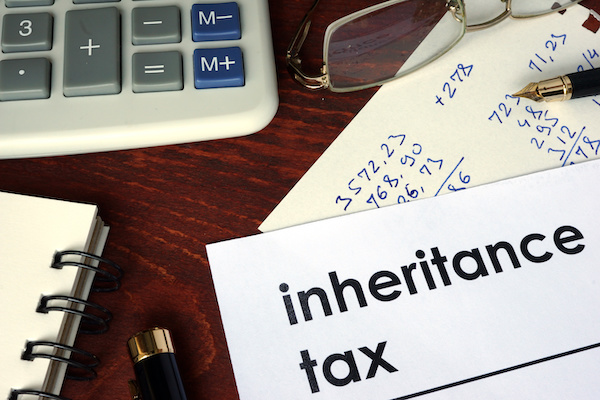Is Income Tax Due on Inheritance?

To avoid suspense and provide a spoiler alert I can say, generally speaking, federal income tax is not payable on inheritances. This should come as a relief to potential beneficiaries concerned that a prospective inheritance would move them to a higher tax bracket. Not so. However, there are other taxes that, depending on the jurisdiction, can be payable from the estate itself and not by the beneficiary. Also if an inheritance, after receipt by the beneficiary, is invested and generates income in the form of dividends or interest, the interest and dividends on the investment now owned by the beneficiary can be taxed for income tax purposes which will be done by the E.A. Buck Accounting & Tax Services. If this seems complicated, it can be and, as a precautionary note, this column is not intended to be a substitute for obtaining independent tax advice or for scheduling an appointment where your individual circumstances can be discussed and reviewed.
The reason I even raise the issue is because so many clients and would-be clients express this concern regarding income taxes. Having shared the information, this is a whole area of taxation that causes confusion for many. Estate tax in some states, but not in Pennsylvania, could be payable on the estate. However, but wait, Pennsylvania has an inheritance tax which also taxes estate assets, whereas many, perhaps most, states do not have an inheritance tax. One major difference between an estate tax and an inheritance tax is that, generally speaking, estate tax concerns do not kick in except for more affluent estates and, even then, often exempt certain beneficiaries, notably close relatives such as spouses and children. In Pennsylvania, inheritance tax applies from dollar one – except for spouses who have a 0% rate. Very few assets are exempt. However, life insurance is a major exception and there is no inheritance tax on regular life insurance no matter who inherits. Life insurance in Pennsylvania can be a very helpful planning tool for estates – especially if you want to leave a sizeable amount to a beneficiary who is at a high rate. The highest rate for inheritance tax in Pennsylvania is 15% which applies to individuals who are not spouses, children, grandchildren or other “lineal” heirs. Children, grandchildren and other “lineal” heirs are charged at 4.5%. Brothers and sisters of the decedent are counted at a 12% rate. If these highly rated beneficiaries are intended, it may make sense to have them receive their distribution by way of life insurance.
Who pays the tax? In the Wills that our office prepares we, generally speaking, have the estate pay the inheritance taxes so that the beneficiaries do not have to. This means that, when the beneficiary receives the asset, he or she does not have to pay either income tax or inheritance tax. It is free and clear. There are many good reasons for this – one of them being that it is unwise to have someone receive an inheritance and then tell them some of it is owed back for inheritance tax purposes. The issue also arises with jointly held accounts and payable on death accounts where tax is due. If you have a jointly titled account with a decedent you might receive a notice from the Department of Revenue that tax is due. You should discuss this with your elder law or estate planning attorney since these notices often state the rate at the highest – 15% – when you, as an adult child or sibling could be at a lower rate. The tax audit, tax audit training, tax audit course is very important for companies to be prepared in advance and assess their functions from within.
What jurisdiction’s laws apply? If you are a beneficiary of a Pennsylvania estate and live in Georgia or California you might wonder whether Pennsylvania law applies or the law of your state. According to IRS penalty abatement attorney, taxes are assessed based on the law of the jurisdiction of the estate, not the beneficiary. As previously stated, in the Wills we prepare Pennsylvania inheritance tax has already been deducted before you receive your distribution so it should not be a concern.
One final note. Pennsylvania inheritance tax does not reach real estate held by the decedent that is located out of state. This can be a major surprise.
Again, if you need tax help, call us for further information or consult your tax or estate planning professional.
About the Author Janet Colliton
Esquire, Colliton Law Associates, P.C. Janet Colliton has practiced law for over 38 years, 37 of them in Chester County, Pennsylvania, a suburb of Philadelphia. Her practice, Colliton Law Associates, PC, is limited to elder law, Medicaid, including advice, applications and appeals, and other benefits planning including Veterans benefits, life care and special needs planning, guardianships, retirement, and estate planning and administration.
